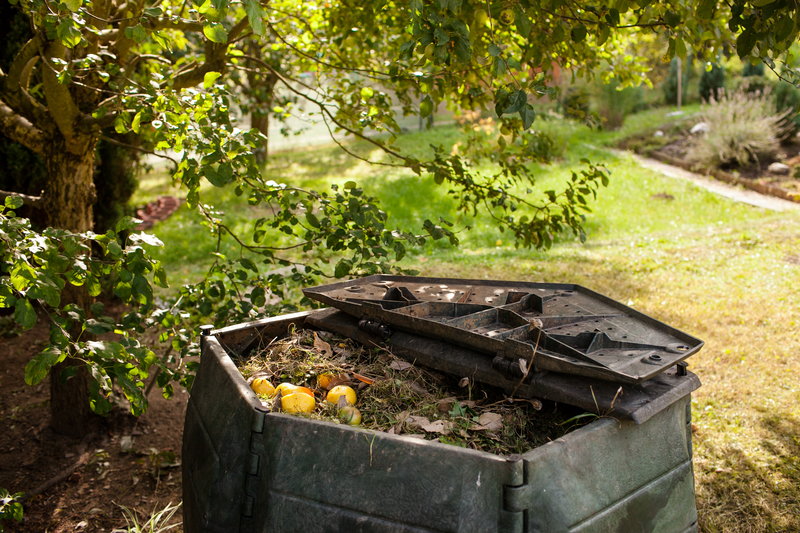Bulky Waste Item Savings for Every Homeowner: A Comprehensive Guide
Are you looking to save money, time, and effort when dealing with bulky waste items at your home? If so, this guide is designed for you. From old furniture to broken appliances, managing and disposing of large household items can be a challenge, but with the right tips, you can maximize your bulky waste item savings.
Understanding Bulky Waste Items
Bulky waste items are large household goods that can't be put in your regular trash cans. Examples include:
- Furniture: Sofas, mattresses, chairs, tables
- Appliances: Refrigerators, washing machines, ovens
- Electronics: Televisions, computers, monitors
- Outdoor Items: Lawnmowers, grills, trampolines
- Miscellaneous: Carpets, large toys, exercise equipment
Dealing with these items doesn't just have to mean costly removals. There are various ways for homeowners to save on bulky waste disposal, recover value, and even help the environment.

Why Proper Disposal is Important
- Environmental Protection: Many bulky items contain hazardous materials that shouldn't end up in a landfill.
- Space Optimization: Freeing up storage improves home value and comfort.
- Cost Efficiency: Savings on bulky waste removal prevents unnecessary expenses and potential penalties.
- Legal Compliance: Improper disposal can result in fines or legal consequences.
Top Strategies for Bulky Waste Item Savings
1. Reuse and Repurpose Before You Dispose
Before paying for disposal, consider if your bulky item can be reused or given a second life. Repurposing furniture or appliances can save you money and even spark some creativity.
- Furniture: Old tables can become workbenches. Mattresses might become garden seating.
- Appliances: An old refrigerator might work as a garage cooler for drinks.
Tip: DIY home projects with old bulky items can increase your home's charm without extra costs.
2. Donate Bulky Goods
One of the best ways to reduce bulky waste and save on removal fees is to donate usable items:
- Contact local charities, shelters, or online donation networks.
- Schedule a pickup and let them do the heavy lifting--often for free!
- Tax Savings: Donating furniture or electronics can yield tax deductions, yielding further bulky waste savings.
Note: Ensure the items are in usable condition. Most organizations won't accept broken or unrepairable goods.
3. Sell Second-Hand Items
Turn your bulky waste into cash rather than a costly expense. Here's how:
- Online Marketplaces: List on Craigslist, Facebook Marketplace, or eBay.
- Garage Sales: Organize a neighborhood event and pool bulky items for better visibility.
- Local Groups: Look for community buy/sell/trade boards.
Selling not only offsets removal costs but often pays for any replacement you need!
4. Upcycle or Refurbish
Give items new life with a little elbow grease. Painting, refinishing, or reupholstering can refresh an outdated piece for your home or for sale.
- Old wooden dressers can become chic TV stands.
- Worn couches can be reupholstered and resold at a premium.
This is ideal for thrifty homeowners interested in maximizing their bulky waste item savings through creativity.
5. Schedule Bulk Pickup
Many municipalities offer free or low-cost bulky waste collection services. To save:
- Check County or City Resources: Find out collection days and guidelines online.
- Combine Items: Pool waste with neighbors to meet pick-up minimums and split fees if needed.
- Follow Guidelines: Some utilities charge extra for overweight items; separate components when possible.
Municipal bulk waste pickups are usually more affordable than private haulers, and timing your clear-out for these dates ensures maximum savings.
6. Utilize Recycling Centers
Local recycling depots often accept and process specific bulky items for free or minimal cost. Items like mattresses, carpets, and electronics are diverted from landfills and processed properly.
- E-waste: TVs, computers, printers
- Metal Goods: Old grills, exercise equipment
- Furniture Materials: Wood, metal, textiles
Using a recycling center not only leads to substantial savings on bulky waste but also fosters eco-friendly habits.
7. DIY Disposal: Rent a Truck or Trailer
If you're disposing of many items at once, renting a truck or trailer and taking it yourself can be economical compared to hiring a junk removal service.
- Plan to combine multiple bulky waste items in one trip.
- Split rental costs with friends or neighbors for added savings.
- Check landfill or recycling center rates in advance.
This approach is best for homeowners willing to invest a bit of personal labor in exchange for budget-friendly, large-scale disposal.
8. Leverage Retailer Take-Back Programs
When buying a new large appliance, many stores offer free or discounted removal of your old item. This is especially common with:
- Mattresses
- Refrigerators
- Washers and dryers
Ask for take-back deals when making new purchases--retailers may have partnerships with recycling programs, further increasing your bulky item disposal savings.
Bulky Waste Item Savings: Pro Tips and Hidden Gems
Compare Junk Removal Services
If you require professional help for non-reusable items, always compare:
- Rates and Minimum Fees: These can differ significantly between providers.
- Accepted Items: Some charge extra for certain materials.
- Group Service Discounts: Book with neighbors for potential volume-based savings.
Pro tip: Ask for a free quote online or over the phone, and clarify any hidden fees in advance!
Understand Local Regulations
Cities often have special requirements for disposing of specific items, especially electronics and mattresses. Research local rules to avoid fines or extra charges, and always seek out approved disposal methods for hazardous materials.
Plan Ahead: Seasonal Savings
- Spring and Fall Cleanups: Some communities offer free bulky waste drop-off days.
- Holiday Promotions: Junk removal companies might offer seasonal discounts.
- End-of-Lease or Move-Out Specials: Real estate agents and property managers often know about seasonal savings options.
Combine your disposal efforts during these windows for the highest bulky waste item savings.
Network with Your Neighborhood
Bulk pickups are more efficient and cost-effective when done collectively:
- Coordinate with neighbors for joint collection days.
- Share costs for dumping or hauling fees.
- Exchange or rehome items amongst yourselves before disposal.
Neighborhood apps like Nextdoor can be a great platform for organizing these group savings!
Case Studies: Homeowners Who Saved on Bulky Waste
Case Study #1: The Upcycling Champion
Jane from Cleveland transformed her old dresser into a kitchen island using a coat of paint and new handles. Not only did she save over $150 on disposal and buying new furniture, but the personalized kitchen piece also increased her home's aesthetic appeal.
Case Study #2: The Garage Sale Pro
The Parkers scheduled a family garage sale after decluttering their basement, selling everything from an unused elliptical to a worn sofa. With a single weekend of effort, they earned $400--enough to fund their next renovation project--while saving on removal costs.
Case Study #3: Community Bulk Pickup
In Orlando, a group of neighbors organized their annual spring cleaning to align with the city's "free bulky waste pickup week." By coordinating on a local app, they maximized space on the collection vehicle and avoided private hauling fees, collectively saving hundreds of dollars.
Frequently Asked Questions (FAQs) on Bulky Waste Item Savings
-
Q: What are the most expensive bulky items to dispose of?
A: Appliances with refrigerants (e.g., fridges, air conditioners) and electronics can incur additional fees due to environmental regulations. Mattresses and large sectional sofas are also more costly due to their size and recycling requirements. -
Q: How can I find my city's next bulky waste pickup?
A: Check your city or county website, or call their sanitation department for pick-up schedules and restrictions. -
Q: Are there any bulky items that can be entirely free to dispose of?
A: Many cities offer at least one or two free pickups per year. Some recycling centers accept certain items, such as scrap metal or e-waste, at no charge. -
Q: Can I mix different bulky items together for disposal?
A: Always check local guidelines. Many services require you to separate electronics, metals, and hazardous materials to prevent contamination and allow for proper recycling.

The Environmental and Financial Benefits of Bulky Waste Savings
Achieving bulky waste item savings isn't just about protecting your wallet. Responsible disposal and re-use:
- Reduces landfill impacts
- Encourages a sharing economy
- Supports local charities
- Fosters a cleaner, more organized home environment
By embracing sustainable, budget-friendly approaches to bulky waste, every homeowner contributes positively to their community and the planet.
Conclusion: Every Homeowner Can Save Big on Bulky Waste
Smart, strategic management of bulky waste items can help homeowners save hundreds--if not thousands--of dollars over time. From reusing and donating to recycling and collective pickups, the options are diverse, accessible, and often surprisingly easy.
The next time you face a garage full of unwanted items, remember: savings on bulky waste removal can be your reward for a little research, teamwork, and creativity.
Start planning your bulky waste disposal today and experience the savings tomorrow!
Related Resources
Remember, every small action leads to big savings--both for your budget and the environment!
